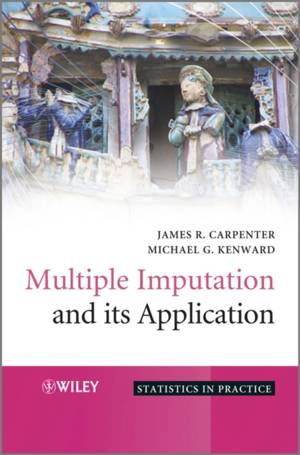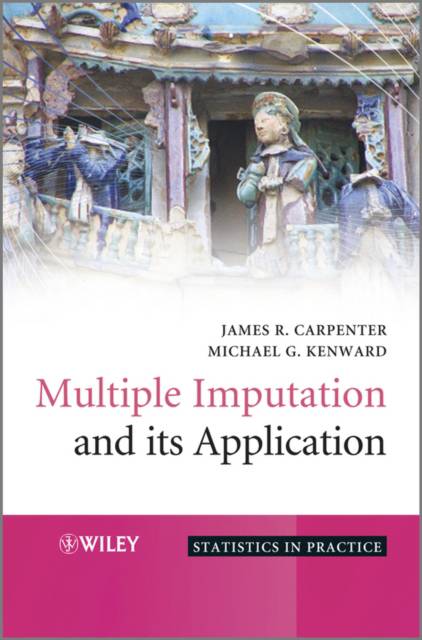
- Retrait gratuit dans votre magasin Club
- 7.000.000 titres dans notre catalogue
- Payer en toute sécurité
- Toujours un magasin près de chez vous
- Retrait gratuit dans votre magasin Club
- 7.000.0000 titres dans notre catalogue
- Payer en toute sécurité
- Toujours un magasin près de chez vous
Description
A practical guide to analysing partially observed data.
Collecting, analysing and drawing inferences from data is central to research in the medical and social sciences. Unfortunately, it is rarely possible to collect all the intended data. The literature on inference from the resulting incomplete data is now huge, and continues to grow both as methods are developed for large and complex data structures, and as increasing computer power and suitable software enable researchers to apply these methods.
This book focuses on a particular statistical method for analysing and drawing inferences from incomplete data, called Multiple Imputation (MI). MI is attractive because it is both practical and widely applicable. The authors aim is to clarify the issues raised by missing data, describing the rationale for MI, the relationship between the various imputation models and associated algorithms and its application to increasingly complex data structures.
Multiple Imputation and its Application
- Discusses the issues raised by the analysis of partially observed data, and the assumptions on which analyses rest.
- Presents a practical guide to the issues to consider when analysing incomplete data from both observational studies and randomized trials.
- Provides a detailed discussion of the practical use of MI with real-world examples drawn from medical and social statistics.
- Explores handling non-linear relationships and interactions with multiple imputation, survival analysis, multilevel multiple imputation, sensitivity analysis via multiple imputation, using non-response weights with multiple imputation and doubly robust multiple imputation.
Multiple Imputation and its Application is aimed at quantitative researchers and students in the medical and social sciences with the aim of clarifying the issues raised by the analysis of incomplete data data, outlining the rationale for MI and describing how to consider and address the issues that arise in its application.
Spécifications
Parties prenantes
- Auteur(s) :
- Editeur:
Contenu
- Nombre de pages :
- 368
- Langue:
- Anglais
- Collection :
- Tome:
- n° 79
Caractéristiques
- EAN:
- 9780470740521
- Date de parution :
- 18-02-13
- Format:
- Livre relié
- Format numérique:
- Genaaid
- Dimensions :
- 160 mm x 236 mm
- Poids :
- 589 g

Les avis
Nous publions uniquement les avis qui respectent les conditions requises. Consultez nos conditions pour les avis.






